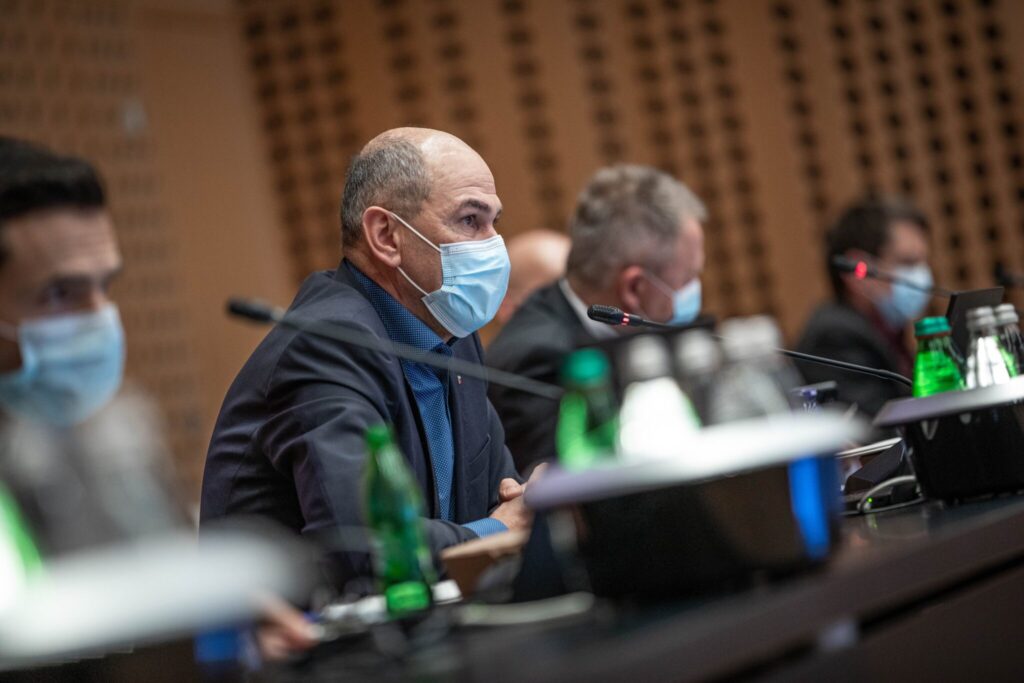At Wednesday’s correspondence session, the government redistributed the spending rights in this year’s state budget and agreed to donate 150 thousand doses of the AstraZeneca vaccine against covid-19 to the Republic of Cape Verde free of charge. The government also decided to introduce a reorganisation in the Ministry of the Interior and the police, in the field of management of human, financial-accounting, and logistical-support resources, as they estimate that the reorganisation from 2010 did not cover personnel, financial, and logistical activities, which means that the performance of work tasks in these units remained unchanged.
At Wednesday’s 247th correspondence session, the government decided on redistribution and allocations of spending rights in this year’s state budget. Among other things, the Ministry of Agriculture, Forestry and Food will reallocate spending rights within its financial plan in the amount of 8,479,181.32 euros. Under the anti-corona legislation, this will provide additional funding for the payment of financial compensation to beneficiaries in the beef sector, the edible potato growers, apple growers, complementary farm operators and pig farmers. Additional funds will also be provided for the payment of a one-off solidarity allowance for members of farms.
The Ministry of Education, Science and Sport will reallocate funds in the total amount of 439,377.95 euros within its financial plan. In accordance with the February decision of the government, which gave its consent to the call for undergraduate study programmes for 2021/22, the ministries of education and health must provide all three faculties additional funds and assistance in providing other necessary conditions for increased enrolment to the study programmes in the field of health and computer science.
The government has also decided to donate 150 thousand doses of the AstraZeneca vaccine against covid-19 to the Republic of Cape Verde free of charge, as humanitarian aid amid the covid-19 epidemic. “Slovenia is thus also realising its commitment to humanitarian aid during the pandemic of the novel coronavirus disease that has affected the lives and health of people around the world, including the Republic of Cape Verde,” the government explained.
Slovenia currently has surplus quantities of the covid-19 vaccine doses, so it is willing to provide help to the Republic of Cape Verde, as this is actually beneficial for both countries. According to the government, it is in Slovenia’s best interest to get as many people as possible vaccinated, thus ensuring greater collective protection beyond our national borders, including destinations that are of tourist or business interest to many Slovenians.
A reorganisation will happen at the police Among other things, the government adopted the decision to reorganise the Ministry of the Interior and the police in the areas of management of human resources, financial-accounting, and logistics-support resources for the police, professional tasks of handling real property of the police, management of police documentary material, and individual professional tasks in the field of other general police matters.
The reasons for carrying out the reorganisation are of a structural and organisational nature. Its purpose is to verify the results of the 2010 reorganisation and, in case of identified deficiencies or insufficient optimisation of business processes, to formally (organisationally) reorganise the units of the Ministry and the police that perform the tasks listed in Article 3 of the Organisation and Work of the Police Act.
The previous reorganisation did not cover human, financial and logistical activities In the administrative part of the Ministry of the Interior and the police, the project of rationalisation and reorganisation of the work areas of human and financial resources management and information and logistics activities was completed on the 1st of January 2010. As was estimated, the project did not cover human resources, financial and logistical activities, carried out as part of business processes at individual police administrations, so the implementation of work tasks in these units remained unchanged.
According to the decision of the Ministry of the Interior, the goals of the reorganisation are to reduce the number of organisational units; change the structure and type of organisational units; reduce or change the number and structure of jobs; change the number of civil servants needed to carry out their tasks; simplify work processes; optimise data flow; distribute work more evenly among the organisational units; shorten the time for the realisation of procedures; determine responsibilities for the implementation of an individual procedure; reduce the costs of performing procedures and unify the performance of individual tasks in similar procedures in different organisational units.
Sara Rančigaj


